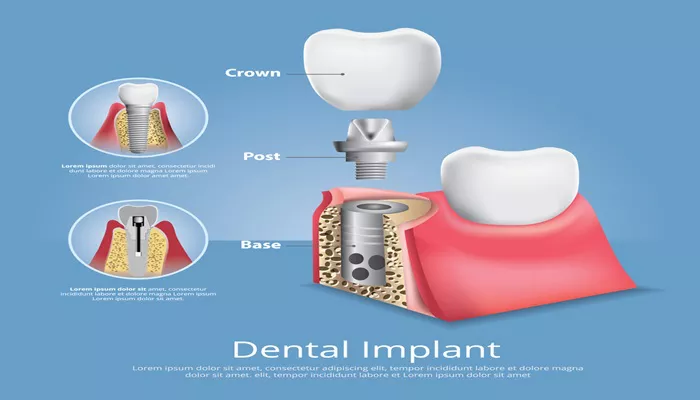Dental implants are a popular way to replace missing teeth. They are strong and look natural. Many people wonder if dental implants are really necessary. This article will explore why dental implants might be needed and their benefits. It will also discuss alternatives and factors to consider.
What Are Dental Implants?
Dental implants are artificial tooth roots. They are made of titanium. They are placed into the jawbone through surgery.
Once they heal, they can support crowns, bridges, or dentures. Dental implants feel and function like natural teeth.
See also: How Dental Implants Are Made?
Why Do People Need Dental Implants?
People need dental implants for several reasons:
Missing Teeth: When a tooth is missing, it can cause problems. Eating and speaking become difficult. The gap can also affect your smile.
Bone Loss: When teeth are missing, the jawbone can shrink. Dental implants help prevent bone loss by stimulating the bone.
Preserve Facial Structure: Missing teeth can change the shape of your face. Dental implants help maintain your natural facial structure.
Improved Oral Health: Missing teeth can lead to other dental problems. The remaining teeth may shift, causing bite issues and other complications.
Long-Term Solution: Dental implants are durable and can last many years, even a lifetime with proper care.
Benefits of Dental Implants
Dental implants offer several benefits:
Natural Appearance: Implants look and feel like natural teeth.
Improved Comfort: Implants are comfortable and secure. They do not move like dentures.
Better Function: You can eat and speak more easily with implants.
Durability: Implants are strong and long-lasting.
Preserve Bone and Teeth: Implants prevent bone loss and do not affect neighboring teeth.
Alternatives to Dental Implants
While dental implants have many benefits, they are not the only option. Here are some alternatives:
Bridges: Dental bridges fill the gap left by missing teeth. They are supported by adjacent teeth. Bridges are less expensive but do not last as long as implants.
Dentures: Dentures are removable replacements for missing teeth. They can be full or partial. Dentures are less expensive but can be less comfortable and secure.
Partial Dentures: These are used when only a few teeth are missing. They are removable and clasp onto remaining teeth. Partial dentures are less stable than implants.
Factors to Consider
Before deciding on dental implants, consider these factors:
Cost: Dental implants can be expensive. Insurance may not cover all costs.
Surgery: Implant placement requires surgery. There are risks, such as infection and nerve damage.
Healing Time: It can take several months for implants to heal and integrate with the bone.
Oral Health: Good oral health is needed for implants. This includes healthy gums and enough bone.
Overall Health: Certain health conditions can affect implant success. Conditions like diabetes and smoking can impact healing.
Are Dental Implants Always Necessary?
Dental implants are not always necessary. Here are some situations where they might not be needed:
Minor Tooth Loss: If only a single tooth is missing, a bridge or partial denture might be sufficient.
Health Issues: Some patients have health conditions that make implants risky.
Cost Concerns: If cost is a major concern, other options like bridges or dentures may be considered.
Short-Term Needs: For short-term solutions, removable dentures might be more practical.
Consulting with a Dentist
It is essential to consult with a dentist to determine if dental implants are the right choice. During the consultation, the dentist will:
Examine Your Mouth: The dentist will check the condition of your gums and bone.
Discuss Your Medical History: Your overall health and any medical conditions will be reviewed.
Evaluate Your Needs: The dentist will consider your specific dental needs and goals.
Provide Options: You will be informed about different options and their pros and cons.
The Dental Implant Procedure
If you decide on dental implants, here is what to expect:
Initial Consultation: The dentist will create a treatment plan.
Preparation: If needed, any damaged teeth will be extracted, and bone grafting may be done.
Implant Placement: The dentist will surgically place the implant into the jawbone.
Healing Period: The implant needs time to fuse with the bone, which can take a few months.
Abutment Placement: Once healed, an abutment is placed on the implant.
Final Restoration: A crown, bridge, or denture is attached to the abutment.
Post-Procedure Care
Proper care is crucial for the success of dental implants. Here are some tips:
Good Oral Hygiene: Brush and floss regularly to keep your mouth clean.
Regular Dental Visits: Visit your dentist for check-ups and cleanings.
Healthy Diet: Eat a balanced diet to support your overall health.
Avoid Smoking: Smoking can impair healing and increase the risk of complications.
Long-Term Success
Dental implants have a high success rate. With proper care, they can last many years, even a lifetime. Factors contributing to long-term success include:
Experienced Dentist: An experienced dentist can increase the likelihood of a successful outcome.
Patient’s Health: Good oral and overall health are crucial.
Patient Compliance: Following post-procedure care instructions is essential.
Conclusion
Dental implants offer a reliable and long-term solution for missing teeth. They have many benefits, including improved appearance, comfort, and function. However, they are not always necessary for everyone. Alternatives like bridges and dentures are available. It is important to consult with a dentist to determine the best option for your specific needs. With proper care and maintenance, dental implants can enhance your quality of life and provide a lasting solution for missing teeth.

